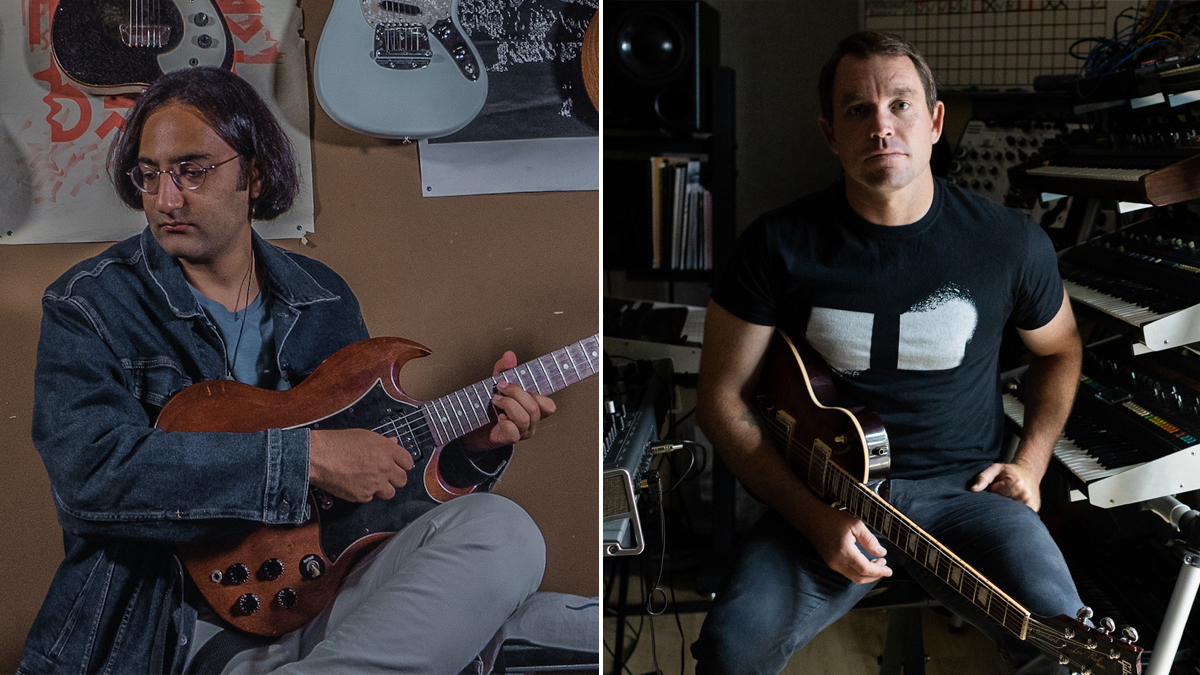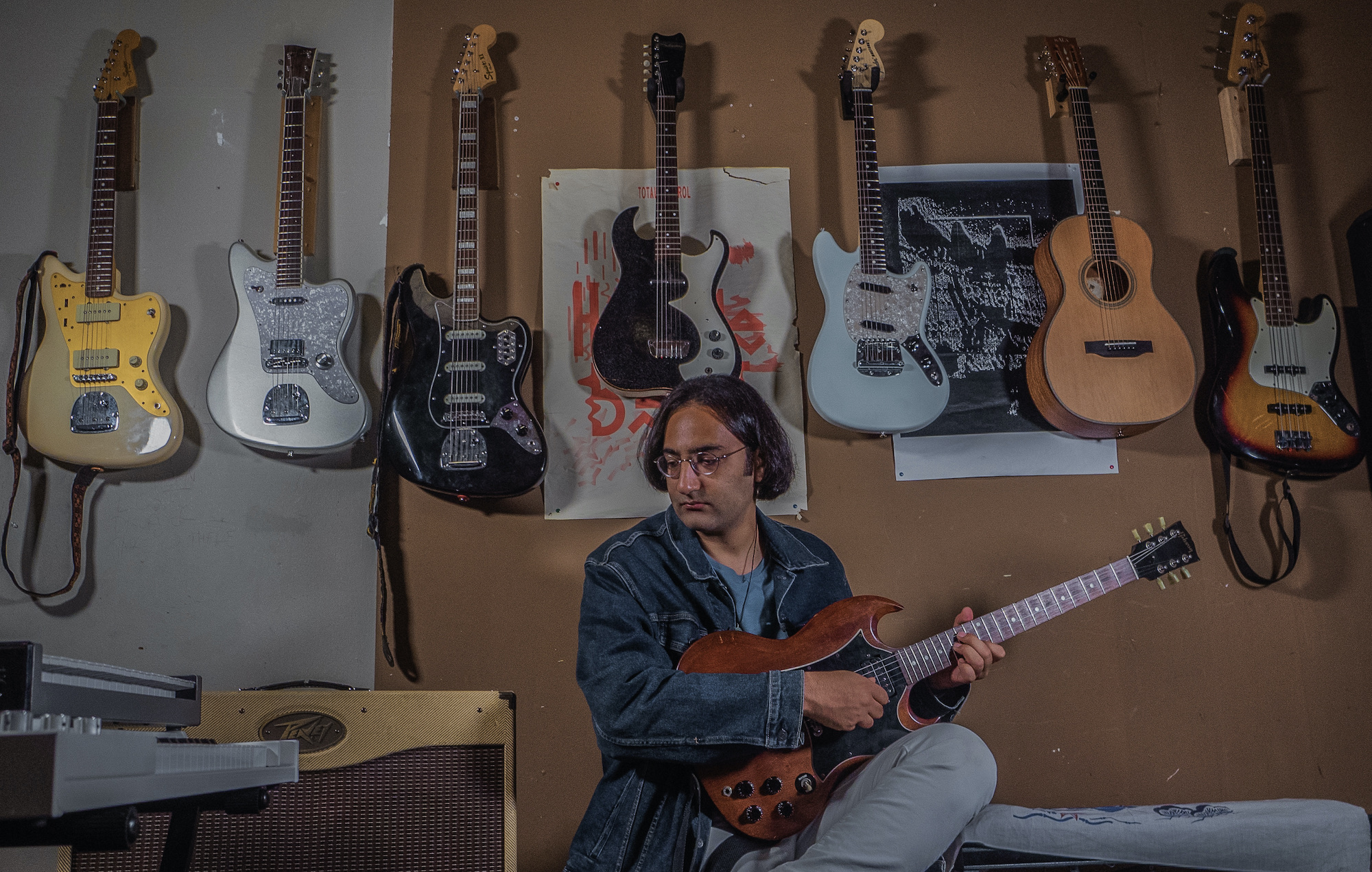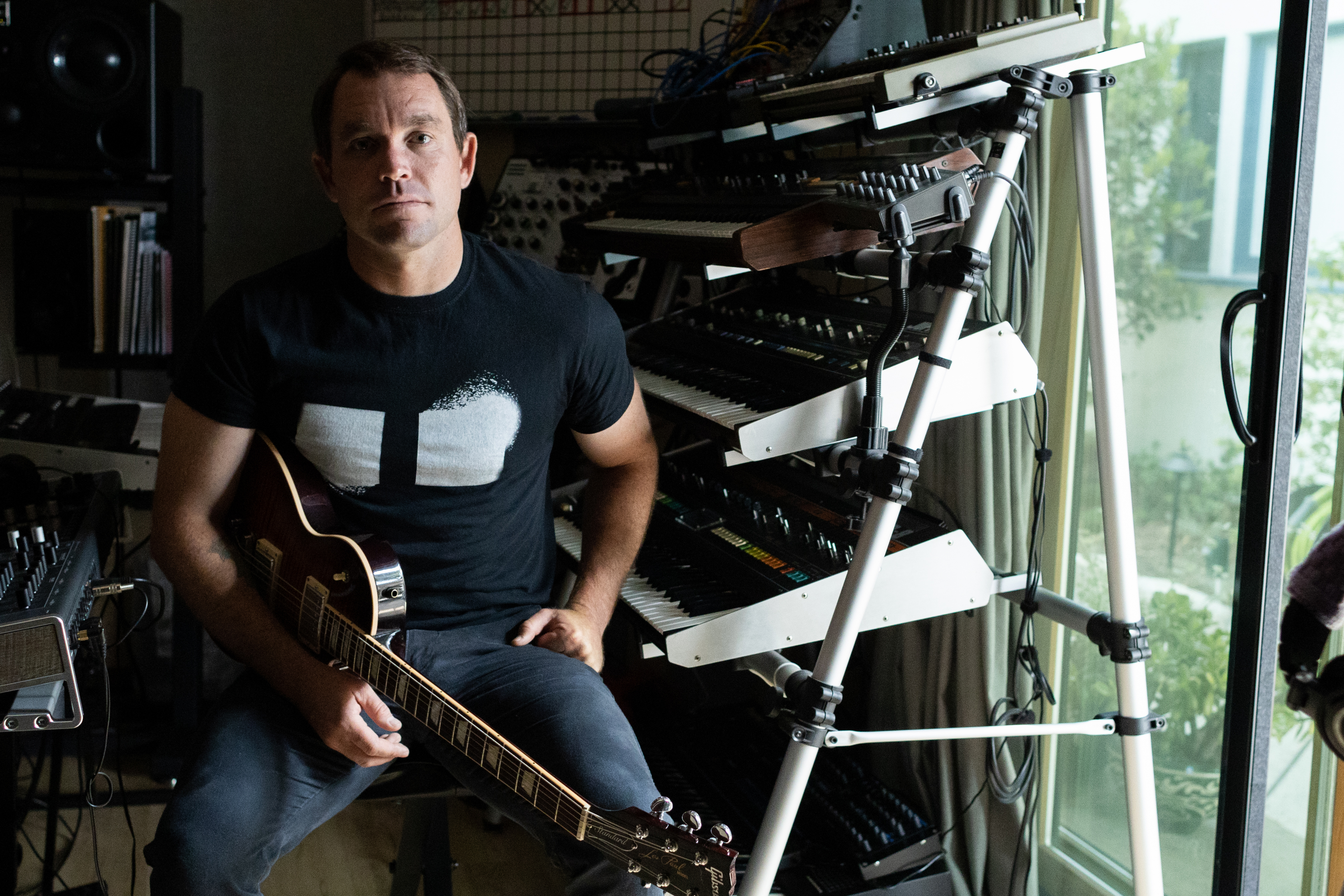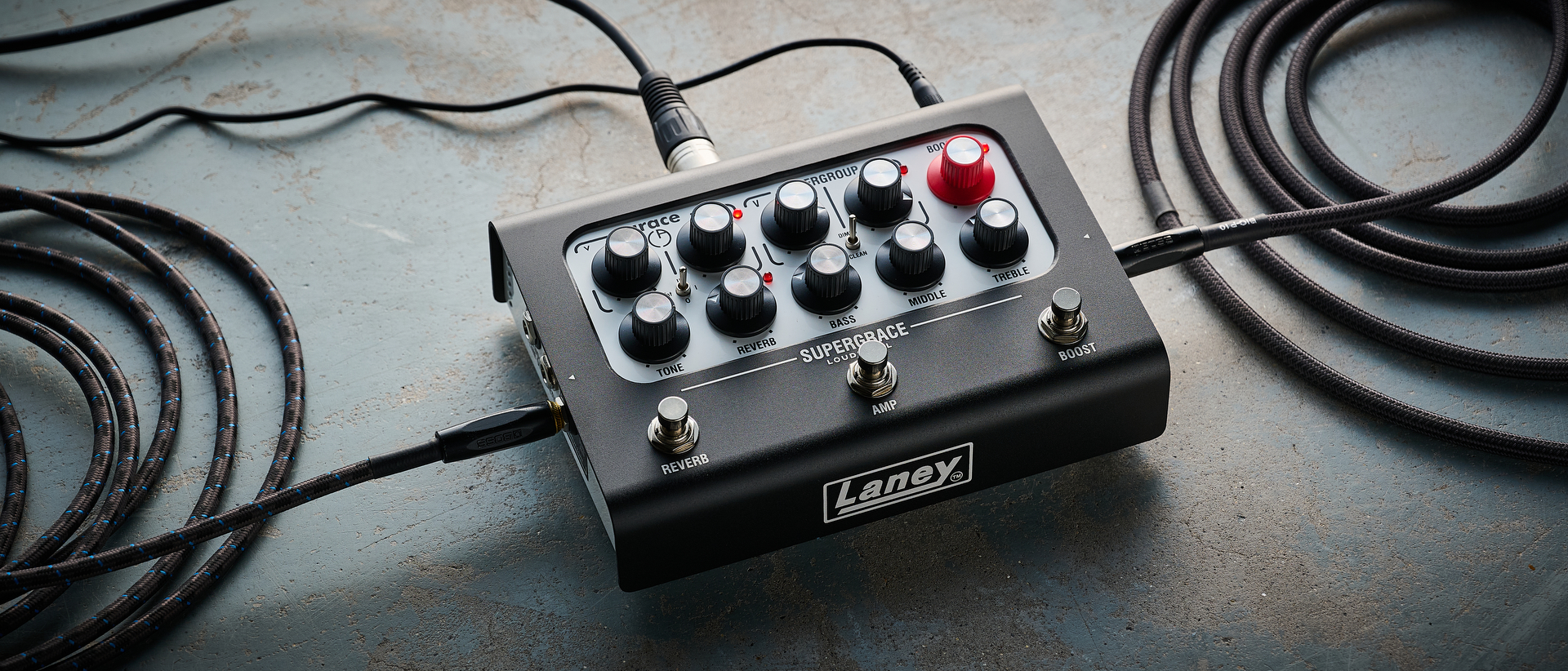Deafheaven's Shiv Mehra and Kerry McCoy on embracing new gear and sonic approaches for Infinite Granite: “We replaced heaviness with intensity”
The post-metal five-piece dial back the gain and explore a brave new world of shimmery sounds for their fifth studio effort

All the latest guitar news, interviews, lessons, reviews, deals and more, direct to your inbox!
You are now subscribed
Your newsletter sign-up was successful
Uncompromising, unflinching and unwilling to be boxed in, Deafheaven have always been hard to pin down.
The Bay Area five-piece have been pushing the boundaries of heavy music since they burst onto the scene early last decade, blurring the lines between post-rock, black metal and shoegaze to the point that nobody really knows exactly what to make of them.
Too brutal for one crowd, too hip for the other, and for those that are on board, there’s absolutely no guarantee they’ll do what you want them to – just as it should be.
True to form, they’ve taken another wild leap on their new album, Infinite Granite.
Teaming up with acclaimed producer Justin Meldal-Johnsen – best known for his work with M83, Wolf Alice and Paramore, not to mention his work as a longtime Beck collaborator and time as a former live member of Nine Inch Nails – Deafheaven have made what they call their most “deliberate” record.
Embracing melody and exploring dynamics and space in new ways, Infinite Granite sees Deafheaven focusing their energy on songcraft above anything else.
Guitarists Kerry McCoy and Shiv Mehra say that while it’s been a natural progression, their new direction was also very much inspired by Meldal-Johnsen.
All the latest guitar news, interviews, lessons, reviews, deals and more, direct to your inbox!
The band started working on the album in mid-2019, with Meldal-Johnsen joining the band for pre-production in an Echo Park rehearsal space, overseeing the project from even it’s most infant stages and offering guidance and feedback on arrangements and approaches.
“Knowing Justin’s background, it was just a given that if we get to work with him, and have his advice on how to build these songs, that would just take us to another level that we already were intending to go to. And it really did really pay off. He opened doors in our own minds of writing that I don't think we even knew were there,” Mehra says.
“Yeah, It's a weird thing to describe because Justin doesn't write anything for us – it was so much more abstract than that,” McCoy explains.
“He would just kind of give these very vivid descriptions where he would kind of sum up these emotions and the vibe he was kind of getting from a song and from a part, and what he liked about it and what he didn't like about it. it just made so much sense that I would be like, ‘oh, okay’, and so we would kind of go revamp some things.”

Having Justin on board probably impacted things in a tonal sense as well?
Mehra: "That's the thing with Justin – we got to explore a lot more pedal-wise and tonality-wise, like using different guitar combinations of amps, which was cool, but then synth-wise also.
"I generally was playing synth, and Kerry had his set up too as we were structuring some stuff together. But then to have the arsenal that Justin has at his studio was incredible because we got to use the ARP 2600 and the [EMS] Synthi [AKS], just all these iconic synths that I've always wanted to use."
McCoy: "Yeah, in the synth sense, I would say that was 90 percent Shiv and Justin's domain. I came up with some little little things here and there and some chord progressions, but they went deep into the weeds with it."
Mehra: "Yeah, and then the interlude track, Neptune Raining Diamonds, is basically just Kerry and I both getting to use a Prophet and the Synthi. And just everything that you might want to dream of."
It must be a bit like having the keys to the toy shop going into the studio with Justin. What were some of the other things that really stood out to you?
Mehra: "Totally, totally. Even his pedal collection – it's like he's in the microcosm. The Cooper FX and just all these pedals that were new to us that are so cool.
"For me, using the ARP 2600 analogue synth was amazing. But guitar-wise, the [Fender] Maverick Dorado was just such a clean guitar, so beautiful. And Rickenbakers; that's the thing I think we dove more into, with each particular part needing a certain type of tonality. And that opened the realm for everything we needed to do. I don't know about Kerry, you probably had your own experiences."
McCoy: "I really enjoyed using for In Blur, literally just the classic Johnny Marr setup of having the Rickenbacker through a [Roland] JC-120 with a wide stereo chorus. I remember being like, ‘wow, this is literally that sound.’ Justin was like, ‘yeah, yeah pretty well’ (laughs).
"Because I'd never played that, I'm a Les Paul guy – played through heavy amps. I like to mimic these sounds, but this is ‘the sound’. So there was a bit of a challenge having to adjust my playing to a Rickenbacker, not pressing as hard on the strings and maybe playing a little gently, but it was a fun time."
Mehra: "Yeah, we also got to experiment with fuzz pedals. Like, if you listen to The Gnashing, the outro is some deep fuzz explorations and it was really dense. And then on Neptune Raining Diamonds, we did some cool stuff with the Maverick where we detuned all the strings to D and just used a pencil to kind of slam the strings through a bunch of pedal effects – experimentation to the maximum. It was really fun."
You used a lot of different stuff recording it. Will you just be getting by on the Peaveys on the road, or will you have to bring some Twin Reverbs now?
Mehra: "We'll probably do both of them if we have to."
McCoy: "I think so far we're absolutely using Twin Reverbs for this. So we will see how far those can take us. But yeah, gear wise, it's a big, big revamping."
Mehra: "There’s bringing in new amps, and then space stations growing. We've already kind of worked it out. We've played some of the songs together now since we recorded. So we have mapped it all out, and it's fun. And it's intense."
I suppose it's always the danger of going crazy in the studio.
McCoy: "Yeah, it took a while to think about how to execute it live. Our boards, our amps are – we're adapting. And synth-wise, we've got versatile synths to cover all the bases.
Mehra: "Yeah, I mean, I love Twin Reverbs, and Princetons, and most Fender amps along with the Peavey side. So it's cool tonality wise to have experience of both, that we can now bring – it’s just more gear."

Just because we're talking about the Johnny Marr setup, I was going to say this is the most Johnny Marr you've sounded, Kerry.
McCoy: "Yeah, I think a little bit of that was Justin's nudging as well. When I think of that stuff, I think mostly of the verses and stuff to Shellstar where it's just Shiv playing some synth chords and then doing some harmonies on the pre-chorus; just allowing this very jangly shimmery guitar to come out. And I remember when we were working on it, it was very different.
"It was the same chords, but they were down an octave. And Justin just said ‘have you tried another voicing for that?’ I think he helped recognize our strengths and helped push us in that direction. And I think it is the default of a lot of the stuff I naturally lean towards musically, so it just kind of ballooned a bit more."
Mehra: "Yeah, I feel like K already kind of has it in him to write some Marr-esque riffs, and then maybe it just shone the light a little more and clarified it a little bit more, you know? But there's a lot of different styles on the album.
"It's a melding of all of our tastes, just kind of like growing up and fusing together even more. Even now, it's getting further and further into that, especially when you add new members, it brings new stylings. When [bassist] Chris [Johnson] joined the band, I think things started changing more and more too."
There’s obviously been a bit of a shift here to something a bit softer and melodic, and the heavy stuff happens far less frequently. But I find as a listener that actually makes those parts a lot more impactful when they do come around.
McCoy: "I agree. I think early on we kind of had this idea to try and replace heaviness with intensity. And I think we achieved that."
There's that massive blast on Mombasa, but even on Great Mass of Colour, when it kicks in, it really takes it to another level.
McCoy: "Yeah, that blast section has a full Peavey tone right there – that's the classic thing. I think with Great Mass, one of the cool parts was using pedal overdrives and distortions and fuzzes; there's just so much in that world.
"That's why the tonalities are fitting to the part and not necessarily just like this metal tone for if it's not meant to be one, you know? But I think that helps with the intensity rather than just being loud. Being intense in a way where it's fitting to the actual part that needs to be played. That’s where having a hands-on producer comes in really handy."
Is that something you’ll be looking to do again?
Mehra: "Definitely. Because everything was deliberate down to drum tones being particular per the part. We were actually recording this drum set for this part, this [other set] for another [part].That, going with guitar tones being particular, is super deliberate. And his ear for that is so helpful to learn from."
McCoy: "Yeah, he, again, like when we worked with Jack [Shirely] – and Jack is amazing. He's obviously engineered this record too. Part of Jack’s strengths is that he's so hands off, and he wants you to do your thing. And then if you need some advice, or something like that he’ll chime in.
"There's so many records that Justin's been a part of where I could see how you can apply that vibe, to us and get something pretty sick out of it, so we should lean this way. And I think it melded even better than I thought it was going to."
- Infinite Granite is out August 30 via Sargent House.
Chris is a contributor to Guitar World and MusicRadar with around 20 years of guitar playing experience – including writing for and recording various projects for around 15 of those. Outside of practical experience, he’s studied music throughout his life, with a particular focus on composition at university. He’s something of a 90s tragic and a sucker for anything with a groovy, metallic edge or psych and stoner vibes. Outside of music, he’s an avid cook, gardener, and rugby league lover.

